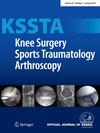Diabetes and total knee arthroplasty: A nationwide analysis of complications, hospitalization outcomes and revision burden
Abstract
Purpose
Total knee arthroplasty (TKA) is a frequently performed surgical procedure aimed at reducing pain, improving mobility, and restoring function in patients with advanced knee osteoarthritis. As patients undergoing TKA age, the prevalence of comorbidities, particularly diabetes, continues to rise. This study assesses post-operative complications, healthcare costs and hospital length of stay (LOS) among diabetic patients undergoing primary and revision TKA using nationwide data from the NIS database, employing propensity score matching (PSM) to minimize confounding variables. We hypothesized that diabetic patients undergoing TKA would experience higher complication rates, greater healthcare costs and longer hospital stays compared to non-diabetic controls.
Methods
This retrospective cohort analysis utilized data from the Nationwide Inpatient Sample from 2016 to 2019, including a total of 2,602,484 TKA patients: 561,340 with type 2 diabetes and 2,041,144 without diabetes. PSM was applied to create balanced cohorts, adjusting for baseline demographic and clinical differences. Outcomes analyzed included LOS, total hospitalization charges, post-operative complications and revision surgery rates. Statistical significance was set at p < 0.05.
Results
Following PSM, diabetic patients exhibited significantly higher risks for post-operative complications, including sepsis, heart failure and surgical site infections, compared to matched non-diabetic controls. Diabetic patients also incurred significantly greater hospital charges ($64,694 vs. $59,952, p < 0.001). In revision TKA cases, diabetic patients demonstrated slightly longer LOS (3.5 days vs. 3.0 days, p < 0.001) and higher total hospital charges ($101,457 vs. $96,614, p = 0.015).
Conclusions
Diabetic patients undergoing TKA experience significantly higher complication rates, hospital charges and revision surgery burden. Orthopaedic surgeons and perioperative teams should implement personalized perioperative management strategies, including optimized glycaemic control, cardiovascular risk assessment and infection prevention measures, to mitigate these risks and improve clinical outcomes.
Levels of Evidence
Level III.






 求助内容:
求助内容: 应助结果提醒方式:
应助结果提醒方式:


